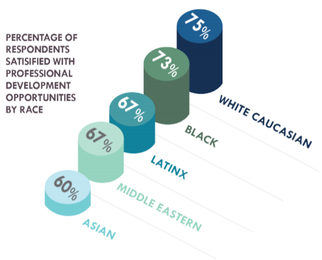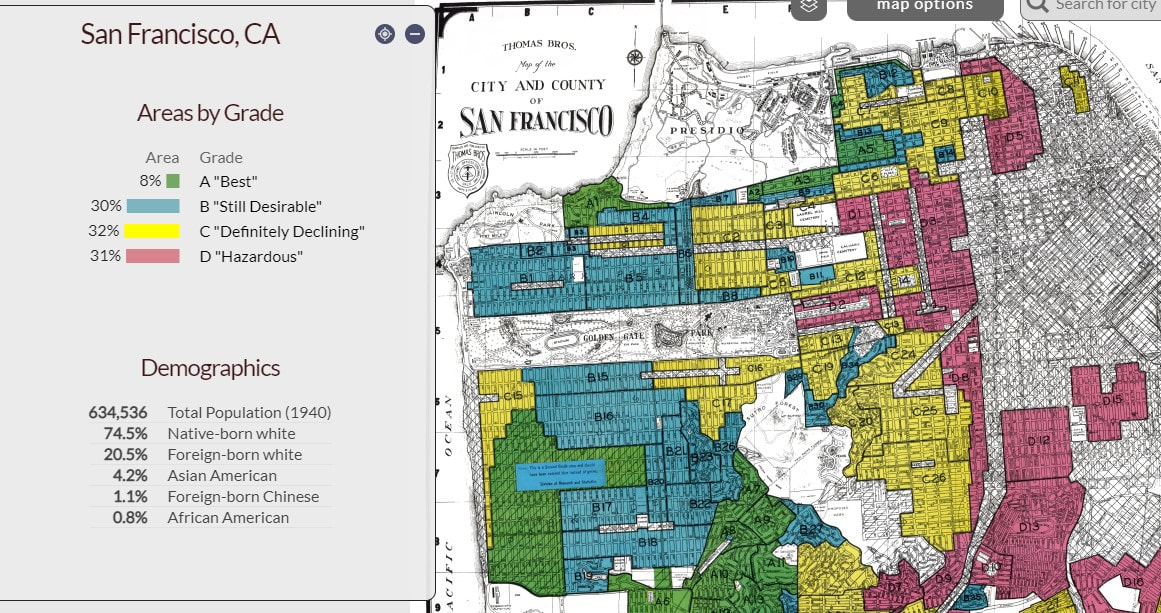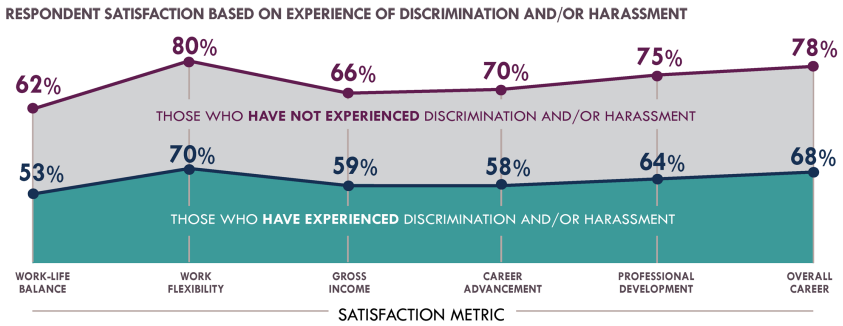|
Join the SEAONC SE3 Racial Equity Book Club for our April meeting
Date: Thursday, April 13th Time: 6:30pm-8:00pm Please join the Racial Equity Book Club’s next meeting! In honor of Earth Month this April, our community will be discussing climate justice as a civil rights issue and contextualizing these issues within the AEC industry. Victims of climate change are typically low income and minority groups who have disproportionately low responsibility for causing emissions in the first place. We hope to have healthy conversations addressing our responsibility as professionals to understand the social context of our design work and how we can push for climate justice in the built environment. We are still developing resources (be on the lookout for a marketing blast with more reading suggestions) but here are some recommended materials to get you started: Episode 70: Chandra Robinson (start at 7 minutes, ~50 minute podcast)
Additional suggested readings:
Register online at seaonc.org
0 Comments
Date: Thursday, February 23rd
Time: 6:30pm-8:00pm In honor of Black History Month, the Racial Equity Book Club will discuss racial equity in the workplace and action items that individuals and organizations can implement as a result of lessons learned. Other topics to consider: Microaggressions in the workplace; Recruitment and retention; and Empowering BIPOC communities and other marginalized groups. Consider the following resources, or bring something new to the group, in preparation for our discussion:
Additional resources Date: Thursday, December 8th
Time: 6:30pm-8:00pm The Authority Gap: Why Women Are Still Taken Less Seriously Than Men, and What We Can Do About It By Mary Ann Sieghart Are women taken less seriously in professional endeavors? Are women afforded fewer opportunities? Are women interrupted more and promoted less than their male coworkers? If so, why, and what can be done about it? If you would like to discuss these issues as well as potential solutions, please join us on December 8, 2022 at 6:30pm for a discussion about selected portions of Ms. Sieghart’s book. To prepare for the meeting, please read the following portions of the book:
The reading assignment is short (should take 30 minutes or less) and can easily be read over the upcoming holiday. Please select and be ready to discuss one or two quotes from Chapter 1 that caught your interest and one or two suggestions from Chapter 15 that would be worthwhile to implement where you work. Gwenyth Searer, a Principal at Wiss, Janney, Elstner Associates, Inc., will be leading the discussion. Other resources (optional): The Likability Dilemma for Women Leaders | Robin Hauser | TED The Great Resignation and Quiet Quitting - what do these phrases mean? For the month of October, the SE3 committee would like to welcome the SEAONC community to join us in discussing the challenges our industry and the overall workforce are facing in recruiting and retaining talent.
The following articles and podcasts provide examples on how The Great Resignation and Quiet Quitting are shedding light on employee needs and desires while also providing suggestions for organizations to meet these shifting demands and increase employee engagement. Perhaps you are seeing these workplace trends taking place in your own organization; this is a safe space to brainstorm ideas with peers on how to better recruit and retain structural engineers in the profession. Feel free to read or listen to any or all of the suggested articles below, or find some of your own to bring to the group!
Sample discussion questions
Date: Thursday, April 14th
Time: 6:30pm-8:00pm For the month of April, the SE3 committee would like to welcome the SEAONC community to join us in discussing our report entitled “Racial Demographics of Civil Engineering Pathways in California: From Undergraduates to Industry Professionals”, which was published in late 2021. This report presents data on the pathways into the structural and civil engineering industry, starting at the university level and continuing into the workforce. With this report, SEAONC SE3 sought to understand the magnitude of underrepresentation of Black, Indigenous, and other marginalized racial groups, and how that representation changes at different stages of the pathways studied. This report is a resource for structural engineering professionals to understand the student demographics of civil, structural, and architectural engineering programs at California universities. At the end of the report, we provided suggested action items to make the profession more equitable and accessible to everyone who may want to enter the structural engineering industry. We hope that you’ll participate in the discussion, particularly if you have read the report:
In honor of Black History Month, we will be learning more about Black and African American people who have made tremendous contributions to Science, Technology, Engineering, Art, and Mathematics (STEAM). SEAONC SE3 invites you to participate by completing one (or all!) of the options below:
Don’t have enough time to participate in this book club meeting? We challenge you to consider donating STEAM books centered on Black and African Americans to local underserved K-12 schools or community centers. Oftentimes, Black students do not have access to books with Black and African Americans portrayed as scientists, engineers, artists, and more. Here are other links with suggested books for young K-12 readers:
And check out Oakland’s African American Read-In 2022 Recommended Book List with the Read-In Week happening January 31st to February 4th! California residents have experienced many intense wildfires in recent years. These wildfires have caused devastating destruction, displacing many people living in close proximity to forests or dry vegetation. The current drought and global warming are perfect ingredients to generate more wildfires. As structural engineers, we are also being challenged to design buildings and structures in wildfire-prone areas. Government officials are now looking at prescribed burns as a tool for wildfire management, similar to those done by Native tribes before Western settlers arrived. In celebration of Native American Heritage Month, which is in November, join SEAONC SE3’s book club to learn about Indigenous traditions in tending to the land and discuss how they can be incorporated into our changing ideas of wildfire management. Other discussion points will cover how we as structural engineers can harden our buildings and provide defensible space.
We recommend checking out a few of the following articles and videos as background information prior to the discussion:
We would also like to share a series of lectures from the University of British Columbia about engineering, decolonization, and Indigenous design principles. These lectures go well beyond the scope of this book club, but we felt it was relevant to share if participants are interested in learning more. Book Club Goals:
Note: We would like to emphasize that everyone is welcome to come share their opinions and experiences, even if they differ from the resources provided. While the resources provided are a launching point for discussion, SEAONC SE3 does not specifically endorse the material or the author. The affordable housing crisis has been at the forefront of discussion this year highlighted by skyrocketing home prices and eviction moratorium expirations. A host of solutions are being discussed and pursued to solve this seemingly intractable problem, including rezoning single family lots for greater density, promoting accessory dwelling units, offsite modular construction, and housing reparations. Join us on September 9th to discuss what role structural engineers can play in creating an equitable built environment specifically related to access to quality housing.
In preparation for this discussion please review the following materials:
We will be discussing the New York Times Best Seller The Sum of Us: What Racism Costs Everyone and How We Can Prosper Together by Heather McGhee. While racism is typically discussed as a force that negatively affects people of color, in this book, Heather McGhee takes us to different corners of the USA to dive into how racism and the zero-sum game mentality negatively affects everyone. The author showcases several examples throughout American history of how racist policies and practices have negatively affected BIPOC (Black, Indigenous, People of Color) and, indirectly, white people too. McGhee also discusses how the Solidarity Dividend, which is a gain resulting from people joining forces across racial lines, can help us achieve a common goal as a collective rather than failing to do so individually. More specifically, we will be discussing the following chapters:
Here’s a preview of the book in an interview with Heather McGhee on NPR’s Fresh Air: 'Sum Of Us' Examines The Hidden Cost Of Racism — For Everyone Additional references for discussion:
 According to the 2020 NCSEA SE3 Survey findings in the Performance Feedback topic brief, Asian structural engineers are the least likely to be satisfied with their professional development opportunities. Join us to discuss possible causes and how we can help to close this gap. During Asian American and Pacific Islander (AAPI) Heritage Month, on Thursday, May 13, from 6:30-8:00pm, the SEAONC SE3 Racial Equity book club will be discussing the Asian Americans PBS 5-part documentary series (watch time: 1 hour per part), which can be streamed online for free. While all 5 parts can be viewed beforehand, we’ll recommend Part 3 “Good Americans” and Part 5 “Breaking Through” to discuss the model minority myth and how it can play out within the structural engineering workplace. We would also like to provide a safe space to discuss the recent anti-AAPI attacks occurring in the Bay Area and around the country, which are profoundly affecting many AAPI structural engineers today. SEAONC SE3 Chair Tiffany Hwang will be moderating this discussion. |
SEAONC SE3 CommitteeRacial Equity Task Group Archives
March 2023
Categories |



 RSS Feed
RSS Feed